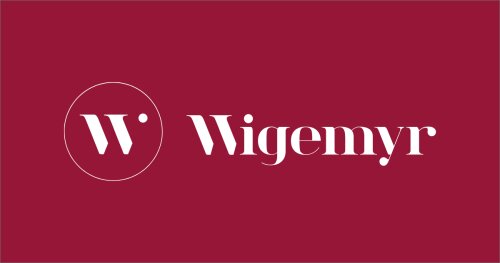Best Animal Law Lawyers in Kristiansand
Share your needs with us, get contacted by law firms.
Free. Takes 2 min.
List of the best lawyers in Kristiansand, Norway
About Animal Law in Kristiansand, Norway
Animal law in Kristiansand, Norway is primarily governed by national legislation that applies throughout the country, supplemented by local regulations relevant to the municipality. These laws are designed to protect the welfare and rights of animals, regulate the responsibilities of animal owners, and address disputes or incidents involving animals. As the largest city in Southern Norway, Kristiansand places a strong emphasis on upholding animal welfare standards, ensuring public safety, and promoting responsible pet ownership within the community.
Why You May Need a Lawyer
People may seek legal assistance in animal law for a range of situations. Common reasons include disputes over pet ownership or custody, allegations of animal neglect or cruelty, conflicts involving dangerous dogs, disputes related to noise or disturbances caused by pets, and issues surrounding pets in rental properties. Additionally, individuals or businesses may need help navigating licensing requirements for animal-related businesses, agreements related to animal sales and breeding, or defending against citations and penalties under animal welfare laws. A lawyer can provide vital guidance in understanding rights and obligations, representing clients in negotiations or court, and ensuring compliance with both national and local regulations.
Local Laws Overview
In Kristiansand, animal welfare is primarily regulated by the Norwegian Animal Welfare Act (Dyrevelferdsloven) and a range of local municipal rules. The Animal Welfare Act establishes principles such as the duty of care, the prohibition of animal abuse, and the need to provide animals with their basic needs. Locally, Kristiansand municipality has implemented additional rules concerning dog handling in public spaces, leash requirements during certain periods, restrictions on animals in public areas, and noise nuisance rules. If an animal injures a person or another animal, owners can be held liable. Furthermore, breeding, trading, or keeping certain exotic animals may require special permits under local or national regulations.
Frequently Asked Questions
What is the main animal welfare law in Norway?
The principal law is the Animal Welfare Act, which sets overarching guidelines and requirements for the treatment and care of all animals, both domesticated and wild, throughout Norway including Kristiansand.
Are there leash laws for dogs in Kristiansand?
Yes, Kristiansand has specific periods during the year-typically from April 1 to October 15-when dogs must be kept on a leash in most outdoor public areas to protect wildlife and ensure public safety. Always check the current municipal regulations for updates.
Can pets be kept in rented apartments?
While Norwegian national tenancy law allows landlords to set reasonable restrictions on pets, such clauses must not be unreasonably restrictive. Tenants should always check their rental contract and, if necessary, negotiate with their landlord if they wish to keep pets.
What should I do if I witness animal neglect or cruelty?
Report any suspected animal neglect or cruelty to the Norwegian Food Safety Authority (Mattilsynet), which handles animal welfare cases, or contact local police in urgent situations.
Are there restrictions on owning exotic animals?
Yes, both Norwegian national law and local Kristiansand regulations have strict rules about keeping exotic and potentially dangerous animals. Special permits are required, and many species are prohibited from private ownership.
Who is liable if my dog bites someone?
Dog owners are responsible for any harm caused by their animals. Victims may be entitled to compensation through civil claims, and owners may face fines, mandatory training, or even an order for the dog to be euthanized in severe cases.
Is animal noise, like barking, regulated?
Yes, persistent animal noise that disturbs neighbors can result in complaints to local authorities. Owners can be required to take measures to reduce noise or face penalties if the disturbance continues.
Can animals be taken away by authorities?
Authorities, including the police or the Norwegian Food Safety Authority, can seize animals if laws are breached-especially in cases of neglect, cruelty, or danger to public safety.
How are disputes over pet ownership resolved?
Pet ownership disputes can be resolved through negotiation or, if necessary, through the courts. Documentation such as microchipping records, veterinary receipts, and purchase contracts can be important evidence.
What permits are needed for animal businesses?
Businesses involving animals, such as pet shops, breeding operations, or boarding facilities, must comply with the Animal Welfare Act and local regulations. This often means applying for permits from the Norwegian Food Safety Authority and Kristiansand municipality.
Additional Resources
If you need more information or assistance regarding animal law in Kristiansand, the following resources can be valuable:
- Norwegian Food Safety Authority (Mattilsynet) - Handles animal welfare complaints and permits.
- Kristiansand Municipality Animal Services - Provides guidance on local animal regulations and complaints.
- Local animal welfare organizations and shelters - Can provide support and advice on animal welfare issues or disputes.
- Norwegian Bar Association (Advokatforeningen) - To find qualified local animal law lawyers.
- Police - For urgent or dangerous situations involving animals.
Next Steps
If you require legal assistance in animal law in Kristiansand, begin by gathering all relevant documentation such as veterinary records, permits, photographs, and any written communications about your situation. Reach out to a local lawyer with expertise in animal law for an initial consultation. Many lawyers will offer advice on your rights, obligations, and possible courses of action. In urgent cases such as animal cruelty or threats to public safety, contact the authorities directly. Proactive and informed action is the best way to resolve legal issues efficiently and protect both your interests and the welfare of the animals involved.
Lawzana helps you find the best lawyers and law firms in Kristiansand through a curated and pre-screened list of qualified legal professionals. Our platform offers rankings and detailed profiles of attorneys and law firms, allowing you to compare based on practice areas, including Animal Law, experience, and client feedback.
Each profile includes a description of the firm's areas of practice, client reviews, team members and partners, year of establishment, spoken languages, office locations, contact information, social media presence, and any published articles or resources. Most firms on our platform speak English and are experienced in both local and international legal matters.
Get a quote from top-rated law firms in Kristiansand, Norway — quickly, securely, and without unnecessary hassle.
Disclaimer:
The information provided on this page is for general informational purposes only and does not constitute legal advice. While we strive to ensure the accuracy and relevance of the content, legal information may change over time, and interpretations of the law can vary. You should always consult with a qualified legal professional for advice specific to your situation.
We disclaim all liability for actions taken or not taken based on the content of this page. If you believe any information is incorrect or outdated, please contact us, and we will review and update it where appropriate.









